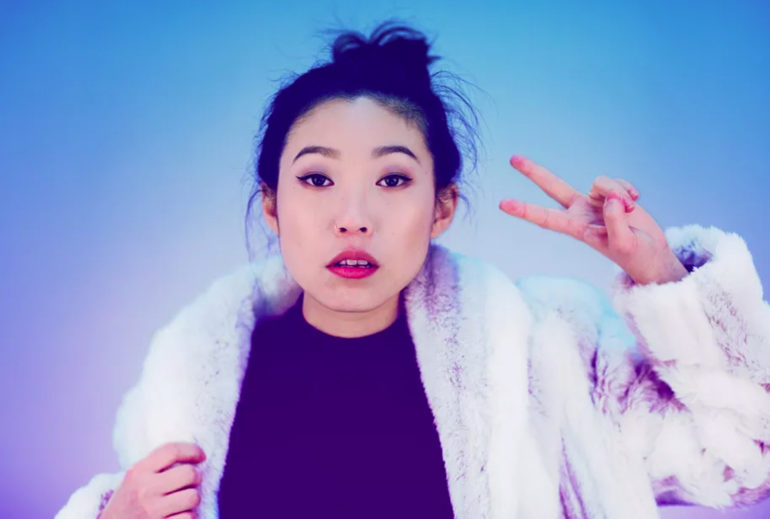By Jamie Jiang
I remember when Asian American representation in mainstream media stopped firmly at Bruno Mars, whose Filipino descent swayed much more than the hearts of the API community. College students, Asian and alike, sigh with nostalgia over the infinitely replayable ballads of “Doo-Wops and Hooligans”. The sweet, lovesick melodies of Doo-Wops & Hooligans ushered Bruno Mars into to the American radio in 2010, to one day land him in 2017 at the Super Bowl halftime show. That first album came out two years before “Gangnam Style”, a song infinitely less replayable and regrettably much more replayed than “Talking To The Moon”.
Nevertheless, it had made it big; and this, I thought, was the end of it. If mainstream musicians ever happened to have East Asian features, then it was because they were playing funny (usually male!) and exaggeratedly unintelligent characters, like Mr. Yunioshi in Breakfast at Tiffany’s, or Long Duk Dong from Sixteen Candles. K-pop continued to enjoy its large share of listeners, but it has always been a niche group that keeps it afloat, never totally in the mainstream. It seemed to me that qualifications for being a popular Asian musician in America, at least in 2012, were speaking in a different language, having a big and ridiculous personality, and lacking originality.
But the story is different today.
In February 2016, “Dat $tick” by 16-year old rapper Rich Chigga (now Rich Brian) started making the rounds on Youtube. When you first watch the video, you literally sit tight, full of the expectation of cringing. You wait for the punchline. The video is not without humor; Rich Brian has the deadpan hilarity of any 16 year old rapper, at once wildly arrogant and coolly self-effacing. He wears a pink polo and sits a fanny pack on his hip and just owns it, like the most Asian dad of Asian dads. The Asian Superdad.
But – and this was hard to admit about him at first – he really was good. 88Rising, an up-and-coming mostly Asian-American-run music label that represents him, published a video called “Rappers React to Rich Brian ft. Ghostface Killah, Desiigner, Tory Lanez & More”. His simple beat and short, unembellished lines had actually won the approval of an audience of seasoned and established (and mostly black) rappers. While acknowledging the comedy, many rappers thought that his voice was unique and his song well done. The music is what they noticed about him; the music was what they recognized. Established non-Asian rappers embraced a brazen Indonesian teenager not for his comedic value alone, but for his talent.
(There is a lot of controversy about this video and its use of the N-word, and there is something to be said about Rich Brian – as well as, it can be argued, Bruno Mars – using black culture and black musicians to bolster his reputation, and this should not be forgotten and prompts discussion. But there is a need for solidarity among minority communities that comes across in these moments. I hope I can ask us not to lose sight of this hope, and support each other in our progress.)
On Friday, October 5th, 88Rising held a concert in the LA area with Rich Brian, Joji, and several other up and coming Asian American and Asian hip hop artists, rapping and singing alternately in Chinese and English. Something about this moment seems like a monumental shift in the consciousness of young college students, a group known to worship music like a religion, and especially those of us who are Asian.
Awkwafina, a female Asian rapper(!!!), recently smashed her way into the true mainstream through two movies, Crazy Rich Asians and Ocean’s 8. She’s literally a comedian, yet her effortless humor takes nothing away from her very thoroughly acclaimed talent. She is featured in a Netflix documentary called Bad Rap, in which four “unlikely” (Asian!) rappers try to make it big in New York. I’m watching out for her to make it big in another Hollywood blockbuster, and from there they won’t be able to hold us back. Awkwafina, through Instagram posts, travel books, and acting, turns a comedic, larger-than-life swagger into the confidence and glamor of a true celebrity of the mainstream media. In so many ways Awkwafina declares that she is a serious artist and not a caricature made for our amusement.
An entertainment industry from which Asian Americans have been excluded with a laugh and a cold shoulder is finally ready for us.
There is more to say about this. We haven’t even addressed the Indie music scene, or the universe that is Los Angeles’s local Asian music scene. If, however, you feel like throwing your money at the next Bruno Mars or Rich Brian and seeing some Asian musicians make the future happen, the Alumnae/Student Diversity Committee and the Asian American Student Union is holding their annual outing to Tuesday Night Cafe, an API community open mic. Look at their expressions and think about how seriously they take their art. Really take it in, my friend. Nobody’s laughing at these artists. That’s going to be us up there someday, all of us Asian American artists facing the wide American public, ready to be taken seriously.
Image Credit: STATUS Magazine



